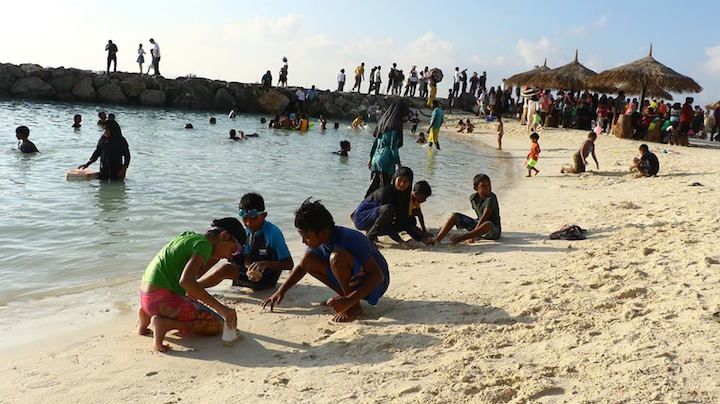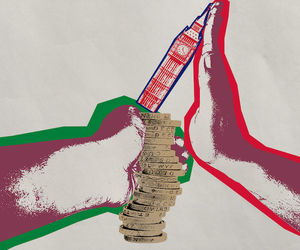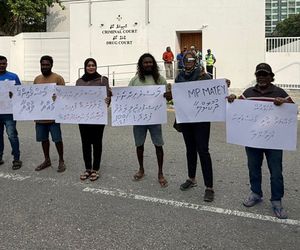New artificial beach closed to swimmers after sewage pipe bursts
The recently opened ‘Rasfannu’ artificial beach in Malé’s west coast has been closed to swimmers after an underwater sewage pipe in the area burst open.

21 Mar 2016, 9:00 AM
The recently opened ‘Rasfannu’ artificial beach in Malé’s west coast has been closed to swimmers after an underwater sewage pipe in the area burst open.
Fazeel Rasheed, an official from Malé Water and Sewerage Company, said one of the sewage pipes extending into the ocean from the northwestern side of the capital was found to be leaking, prompting the housing ministry to close the beach for swimming.
The ministry has put up boards advising swimmers not to go into the water while work is ongoing to fix the leak.
“We were alerted to the leak yesterday evening and we fixed it last night. We are currently working to enforce the fixed area of the pipe,” Fazeel said.
Become a member
Get full access to our archive and personalise your experience.
Already a member?
Discussion
No comments yet. Be the first to share your thoughts!
No comments yet. Be the first to join the conversation!
Join the Conversation
Sign in to share your thoughts under an alias and take part in the discussion. Independent journalism thrives on open, respectful debate — your voice matters.




